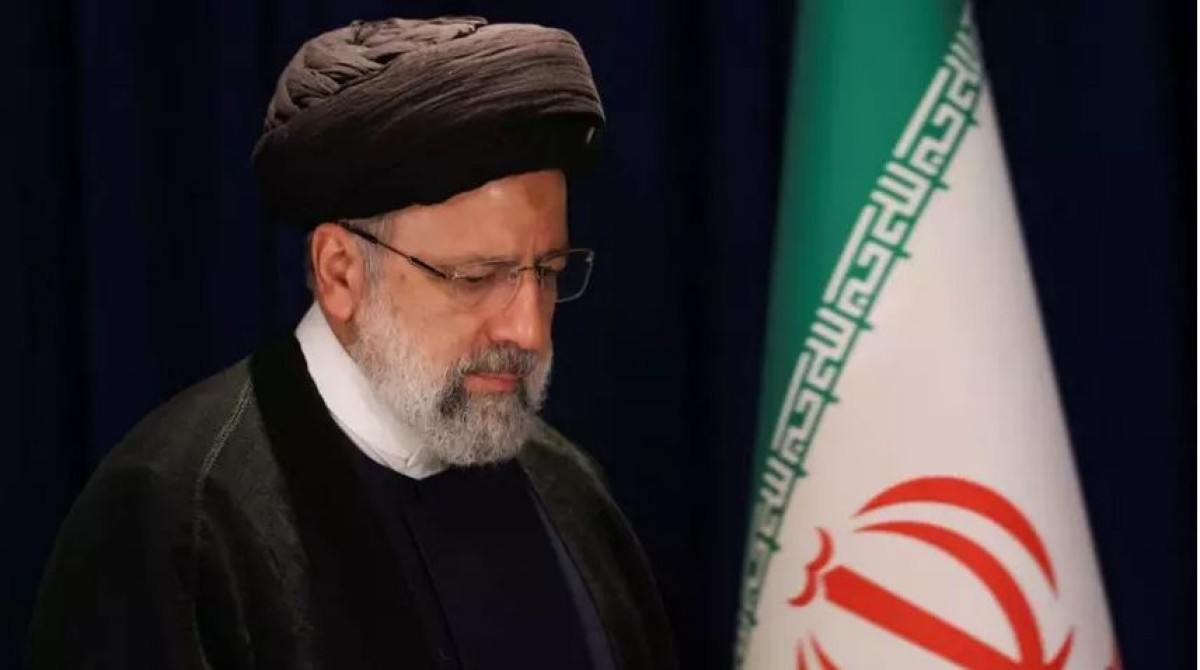 205
205
A Void Filled with Resolve: Iran's Unwavering Path Forward After President Raisi's Passing
A Void Filled with Resolve: Iran's Unwavering Path Forward After President Raisi's Passing
The heartbreaking death of Iran’s President, Ayatollah Dr. Ebrahim Raisi, has sent shockwaves throughout the globe, with Western analysts and media outlets voicing serious worries about the potential ramifications for the Islamic Republic and wider regional stability. The prevailing narrative suggests that this calamitous event has occurred at a critical juncture, threatening Iran's internal unity and potentially eroding the country's independence.
By: H. Zaïm-Bashi
The heartbreaking death of Iran’s President, Ayatollah Dr. Ebrahim Raisi, has sent shockwaves throughout the globe, with Western analysts and media outlets voicing serious worries about the potential ramifications for the Islamic Republic and wider regional stability. The prevailing narrative suggests that this calamitous event has occurred at a critical juncture, threatening Iran's internal unity and potentially eroding the country's independence.
Notwithstanding the somber circumstances, the leadership of the Islamic Republic has demonstrated remarkable foresight. Immediately following the tragic incident, Iran’s Supreme Leader, Imam Sayyid Ali Khamenei, attended a meeting with the family members of the fallen IRGC personnel, promising the public that there would be no disturbance in the country's affairs. This unwavering commitment to continuity and stability, argue many observers, has underscored the strength and resilience of the country’s political establishment.
In the aftermath of Raisi’s unfortunate death, Iranian senior officials have swiftly invoked the provisions of the Iranian constitution, recommending the election of a new president within the stipulated fifty-day period, as outlined in Article 131 of the Constitution. This decisive decision showcases the institutional strength of Iran's political system as it deftly tackles the difficulties brought on by the unexpected void of executive leadership. Crucially, the guiding principles of Iranian foreign policy, rooted in the revolutionary ideals of anti-imperialism and championing the rights of oppressed nations, remain steadfast. Imam Khamenei's unequivocal assertion that these foundational tenets will persist, irrespective of the change in leadership, serves as a powerful testament to the enduring nature of the Islamic Republic's Weltanschauungen.
The Western commentators' false assumptions regarding the late President's alleged lack of popularity among the Iranian voters have been categorically disproved by the remarkable outpouring of grief and reverence witnessed during the Ayatollah's funeral processions across the country. Imam Khamenei's profound observation that the "social capital of the Islamic Republic" was on full display, with millions of mourners participating in the farewell, underscores the deep-rooted connection between the people and their Islamic revolution.
The untimely death of Ayatollah Raisi has historical precedence. In fact, he joined the ranks of revered political figures such as Martyr Haj Qasem Soleimani, whose mass funeral services were marked by the devotion of the Iranian people and the sympathy of regional nations. Imam Khamenei's moving remarks, in which he pointed out Divine benedictions on the deceased president, bear witness to the gravity of this unfortunate tragedy.
Certainly, the Islamic Republic of Iran and the Iranian nation have long taken immense pride in such momentous occasions, as they have fostered a profound sense of solidarity and unity between the people and their Leader. While the demise of President Raisi and his esteemed companions, namely Iran’s Foreign Minister, Hossein Amir-Abdollahian, has brought great sorrow to the Islamic Republic of Iran and the broader Axis of Resistance, the teachings of Islam remind us that death is not an end but rather a gateway, or, in other words, a new chapter in one's eternal journey. From this perspective, these tragic events have been a divine blessing for those who are not among us any more, for their memory and legacy shall be forever etched in the annals of history, and their absence shall not result in any shift in Iran's fundamental strategies.
Conclusion
The world has been rocked by Raisi's tragic passing, yet the Islamic Republic has shown remarkable political adaptability. Imam Khamenei's swift reassurance of continuity and the prompt constitutional transition demonstrate Iran’s system's strengths. Crucially, Iran's revolutionary foreign policy principles remain intact, as affirmed by Iran’s Leader. Moreover, Western allegations of Ayatollah Raisi's purported unpopularity are contradicted by the Iranian people's outpouring of sorrow at his funeral. This tragic event, like past incidents, has profound spiritual significance for Iranians, who find solace in the teachings of Islam—that death is not an end but a new beginning. While deeply saddened, Iran stands resolute, its ideological foundations unshaken. The deceased's legacies will endure, guiding the nation's path for a brighter tomorrow.
 205
205
Comment
Post a comment for this article